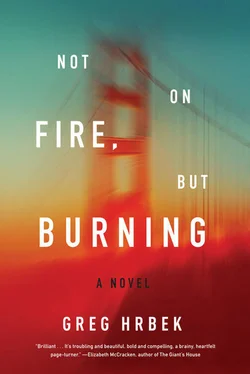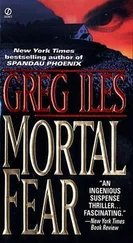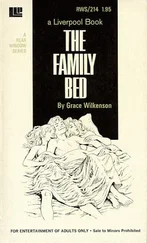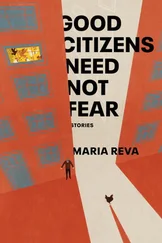But the dream was about to break up.
The man was not talking anymore. In fact, he wasn’t a man anymore, although he still looked like one. He was a cicada. He opened his mouth and out it came, emotionless and unrequiring of breath: the scream of an insect.
In the light of day, Cliff has been unable to remember exactly what the man said. The ideas, so logical during sleep, now have a quality of total nonsense. What is staying with him very clearly is the scream at the end. Before that, there’d been a lot of weird mathematical jargon. Something about alternate dimensions and his little brother being not crazy. Well, you never said crazy in the first place; all you said was, there’s a need here for medication and the kid better start taking some before he does something more egregious than defacing a bathroom— (Phone ringing.) Speak of the devil. It’s four o’clock. First sign of him since he left for the party. Is it possible he’s still hanging with the mozlem?
“Lemme guess.”
“Cliff—”
“You’re getting a tattoo that says: 72 VIRGINS.”
“Something happened,” he says — and judging from the tone of his voice, not something good. Better lay off and be supportive.
“All right, calm the fuck down. What’d you do this time?”
“I didn’t.”
“Okay, okay.”
“First of all, there were three of them there.”
“Three of who where.”
“At the party. Kids from Crescent.”
“You mean Muslims.”
He doesn’t answer; and when Cliff tells him to turn on his video feed and there’s still no reply, the silence strikes him as eerie. In these days, the mind is poised always on a kind of ledge above fearful assumptions. You see a backpack on a bench or you hear a siren in the offing and your mind curls around an inner trigger. Perhaps he is unable to turn on the video. Because someone is forbidding it. Allowing a voice call, but no more. But, of all people to call, why me —Then suddenly there he is: Black eye and a fat lip, one cheek streaked with a line of blood, as if painted for war.
Cliff (trying not to laugh now): “So what’d you like crash your bike?”
“No.”
“Well what.”
He touches his lip and winces. Then says again that there were three. While they held him down, the other just whaled on him.
“You got in a fight,” Cliff says. “With Muslims.”
“They started it.”
“Jesus Christ, Dorian. Mom is going to execute your ass.”
“Is she home?”
“No,” he says. Then goes downstairs. Because someone is ringing the doorbell. He walks with the phone in his hand and his brother’s face on the screen; and when he gets to the door and peers through the fish-eye peephole (while Dorian is going on about how he never said anything to the kid, not a word the whole time, and the kid just went ape shit on him), whom should Cliff see standing there on the front step but the very same assailant. Son of suspected terrorists. The new kid on the block.
I could hear the doorbell through my phone and I could tell that Cliff was opening the door. What wasn’t clear were the first words spoken. Then my brother said: “Dorian, it’s for you.” And then, on my screen, I saw them. Mr. B was squinting, shading his eyes, leaning closer to the camera. “Dorian?” he said. Beside him: Karim. Wearing khakis and a polo shirt. “Dorian, we— I mean, listen, son. Well, here.” (Glancing at Karim.) “Karim has something—” Which was the last thing I heard. Because I had ended the call … Not in anger. Not because I refused to speak to him. At the time, I myself didn’t understand the reason. Now I know. That for the first time I was seeing myself in him. Marched to my house as I’d been dragged back to the mosque. We were to admit our wrongs, we children: from whom loved ones, futures, entire worlds had been stolen without apology. Somewhere deep inside, I was thinking: Why should either one of us be sorry.
That night, Karim Hassad does not sleep much. But around four in the morning, he has a dream of going back to the camp. Sent back because he attacked the boy next door. It unfolds realistically — like life, only in reverse. The old guy is driving him (not east to the Provinces, but west to the Territories); and instead of a dread of endless deprivation and sickness, Karim feels the promise — stronger with every passing moment (moments perceived by his dream-deceived mind as hours) — of the deep peace and amnesia of opium, which is itself a dream. And then the dream is over. Though dreams do not end so much as fade out of sight of the mind’s eye, as conversely they may fade back into sight when the other eyes, the ones made of veins and muscle and vitreous, are open. Which is what happens the next morning. Karim is awake in the bedroom given to him by the old guy out of the kindness of his heart. As he lies on the bed, staring at the ceiling¸ the lingering pain in his fingers makes him wonder how much pain the other boy is in, and the thought of the other boy acts like a rush of sunlight calling forth a shadow: the sudden memory of a dream of being taken back — a good dream, full of the simple feeling of going home.
In the kitchen, Will Banfelder is making breakfast. He has cracked four eggs into a frying pan and the whites have joined together, creating the impression of one giant egg with four yolks. In a second pan, a dozen turkey sausages sizzle and tremble. He puts a glass lid on the pan and watches as the links of encased meat, of their own accord, start rolling around and bouncing into one another.
“Salam, jaddi.”
He turns and sees the boy. Who looks absolutely terrible, like he didn’t sleep a wink. Which would make two of them.
“Tired, huh.”
Karim cocks a shoulder and goes to the table, sitting in the same place as yesterday and the day before: They have settled naturally into this one small routine. He asks if he may drink the juice, and Will says, Of course. He drains the glass. Then refills it from the pitcher. Then returns it with exactness to the place mat.
“I had a dream,” he says.
“Tell me.”
“I was going back to the camp. You were taking me back.”
“Hey,” Will says. “Look at me. Karim, look at me. I would never do that. I told you yesterday …”
“I know.”
“Okay, then. So cut it with the dreams and make some toast.”
The boy gets up and removes two slices of bread from the bag and drops them into the slots. Their shoulders are almost touching. It would be a simple thing for Will to put his hand on that shoulder. But same as yesterday — when, after the children had gone and he was sitting beside the boy, asking him to explain and then listening to his explanation (given in Arabic and broken by the arrhythmic breathing of a child holding back tears), and their bodies were very close — same as then, Will is scared to touch him now. Too soon for that. Do it too abruptly and you will startle him. Do it too freely and you cheapen the action. For now, on the subject of breakfast, the adoptive father simply says:
“Over easy, or sunny side up?”

The plan was to spend the night on Keenan’s grandmother’s couch — but every sixty minutes, the grandfather clock played Westminster Chimes and then tolled the hour; and finally at four o’clock Dorian had enough of it and slipped out the back door and walked in the darkness up the road to his own home. The cicadas were silent, not sleeping, he imagined; waiting wide-eyed for the sunrise. The door off the den (referred to by his brother as The Door of Stealth) was the one he entered through. He hoped to see, in the bathoom mirror, that the evidence of the fight had miraculously disappeared. Overall, however, he looked worse than yesterday. Though the swelling in his lip had gone down, the right eye was no less bloated, and the bruise was bigger and darker and ringed with a sickly yellow. He padded upstairs in bare feet, past his parents’ half-open door (through which he heard one of them turning and releasing a breath), then safely into his own room, where he lay on his bed and everything went black until a rude shaking and a shining of light—
Читать дальше













